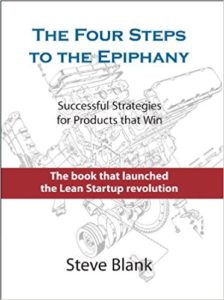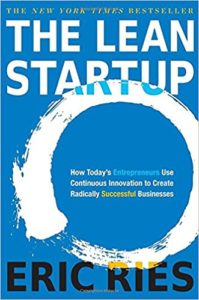 Launching a business is no small task. Fortunately, we live in an age where access to tips, tricks, and the hindsight of others is a click or two away. Robly CEO Adam Robinson, a voracious reader, shares his list of books every SaaS executive should read.
Launching a business is no small task. Fortunately, we live in an age where access to tips, tricks, and the hindsight of others is a click or two away. Robly CEO Adam Robinson, a voracious reader, shares his list of books every SaaS executive should read.
“I recommend many of these to people who are starting non-software business, ” he says, “but the list, on the whole, is the list of a software entrepreneur.”
We’ve grouped his picks into seven different categories:
- General Entrepreneurial Philosophy
- Diligent Start-up Launch
- Marketing
- Product Development
- Sales
- Pricing
- Management
Here’s our list of 23+ books every SaaS executive should read.
General Entrepreneurial Philosophy:
1. Rework and
2. Remote , both byJason Fried and David Heinemeier Hansson
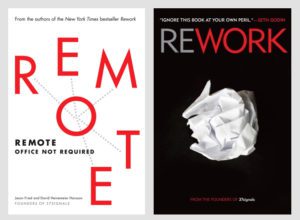 The founders of Basecamp, née 37 Signals, explore the concept of working remotely with confidence. Pros and cons of all aspects are discussed, as well as an emphasis on the move away from brick and mortar offices and why remote workers are oftentimes more productive than those who sit in an office all day.
The founders of Basecamp, née 37 Signals, explore the concept of working remotely with confidence. Pros and cons of all aspects are discussed, as well as an emphasis on the move away from brick and mortar offices and why remote workers are oftentimes more productive than those who sit in an office all day.
Diligent Start-up Launch
3. Four Steps to the Epiphany by Steve Blank
This book has the most comprehensive and academic model I’ve ever seen for launching a start-up, with a heavy emphasis on customer development. It’s dense, reads like a textbook, and has a wealth of recommendations for every book topic in the “recommended reading” section in the back. Fun fact: The Lean Start Up was based on this book.
4. The Lean Start Up: How Today’s Entrepreneurs Use Continuous Innovation to Create Radically Successful Businesses by Eric Ries
A lightweight version of the above title. Uncertainty is an inevitable part of starting a business – this book takes a no-nonsense approach to launching a start-up with logical, practical processes that require putting your overall vision to the test.
Marketing:
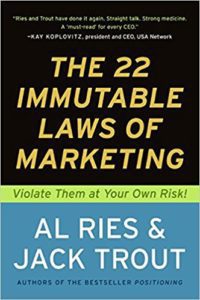 5. The 22 Imutable Laws of Marketing: Violate Them at Your Own Risk by Al Ries and Jack Trout
5. The 22 Imutable Laws of Marketing: Violate Them at Your Own Risk by Al Ries and Jack Trout
There’s one main way to figure out if something is guaranteed to work: do it over and over again and test the results. This book contains the laws any marketing professional should be familiar with to with. Here’s one, as an example: “It is better to be first than to be better.”
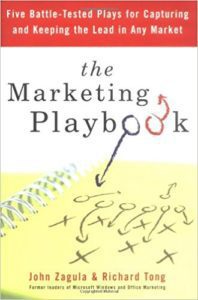 6. The Marketing Playbook: 5 Battle-Tested Plays for Capturing and Keeping the Lead in Any Market by John Zagula & Richard Tong
6. The Marketing Playbook: 5 Battle-Tested Plays for Capturing and Keeping the Lead in Any Market by John Zagula & Richard Tong
Marketing is like competitive sports: how are you going to beat your challengers? Five strategies and their real-world applications are laid out in this title: The Drag Race Play, The Best of Both Play, The High-Low Play, The Platform Play, and The Stealth Play.
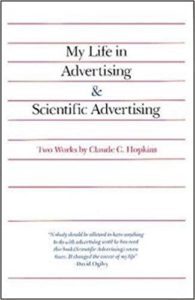 7. My Life in Advertising & Scientific Advertising by Claude C. Hopkins
7. My Life in Advertising & Scientific Advertising by Claude C. Hopkins
This was written in 1927, but is timeless. Hopkins provides a solid foundation for what works in marketing – he was a firm believer in testing strategies and measuring results to find the best sales proposition.
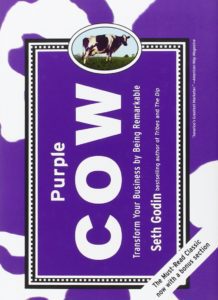 8. All of Seth Godin’s Books, by Seth Godin.
8. All of Seth Godin’s Books, by Seth Godin.
Specifically, Purple Cow and All Marketers Tell Stories. These are great for putting you in the mindset of how important being different is in marketing – telling a cohesive narrative that gels with the worldview of a group of people is essential to any marketing strategy.
Product Development/User Interface/Operations:
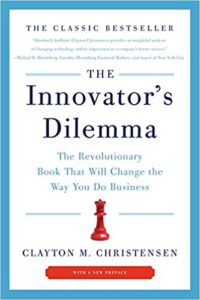 9. The Innovator’s Dilemma: The Revolutionary Book that Will Change the Way You Do Business by Clayton Christensen
9. The Innovator’s Dilemma: The Revolutionary Book that Will Change the Way You Do Business by Clayton Christensen
This read offers a nice model for disruptive innovation. But, at the end of the day, that’s all it is – a model…albeit a helpful one. It’s also a great reminder that you can do everything right and still lose if you’re not focused on change.
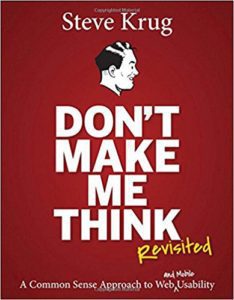 10. Don’t Make Me Think, Revisited: A Common Sense Approach to Web Usability by Steve Krug
10. Don’t Make Me Think, Revisited: A Common Sense Approach to Web Usability by Steve Krug
This one is really helps set up the mentality that your users should never, ever think about anything as they navigate through your site. The title says it all.
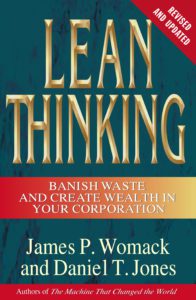 11. Lean Thinking: Banish Waste and Create Wealth in Your Corporation by James P. Womak and Daniel T. Jones
11. Lean Thinking: Banish Waste and Create Wealth in Your Corporation by James P. Womak and Daniel T. Jones
Studying the Toyota lean model is helpful for any entrepreneur. It will inspire you to cut some fat out of somewhere by going back to basics and focusing on what provides value for all aspects of a business.
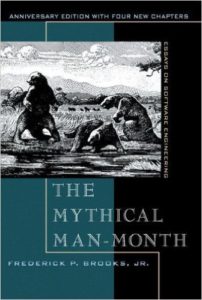 12. The Mythical Man Month: Essays on Software Engineering by Frederick P. Brooks, Jr.
12. The Mythical Man Month: Essays on Software Engineering by Frederick P. Brooks, Jr.
Brooks, a software engineer who managed projects for IBM among other things, wrote this book around his own law: “Adding manpower to a late software project makes it later.” Why do projects go slower when you add more bodies? Did you know that a great developer is 10 times faster than an average one, but only gets paid 30% more (as of this writing)?
Sales:
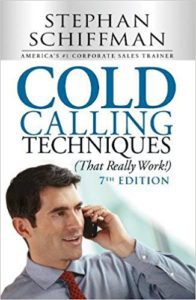 13. Cold Calling Techniques that Actually Work by Stephan Schiffman
13. Cold Calling Techniques that Actually Work by Stephan Schiffman
If you need to build a phone sales organization and don’t know where to start, the place to start is to pick up the phone and start trying to book demos. How do I do that? What is a demo? It’s all here. Great book.
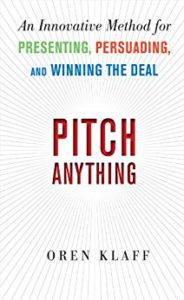 14. Pitch Anything by Oren Klaff
14. Pitch Anything by Oren Klaff
This is a good complement to Cold Calling Techniques. It will help you craft a demo…if you can get past the audacity of the author. Let’s just say he’s confident in his craft – but the narrative framework he proposes alongside highlighting what people do and don’t care about are incredibly helpful.
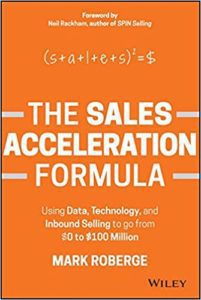 15. The Sales Acceleration Formula: Using Data, Technology, and Inbound Selling to go from $0 to $100 Million by Mark Rouberge
15. The Sales Acceleration Formula: Using Data, Technology, and Inbound Selling to go from $0 to $100 Million by Mark Rouberge
This is about building the sales machine with a strong emphasis on recruiting for head of sales. It also focuses on doing it in a way that is scalable and dives into the processes for hiring, training, leveraging technology, and more.
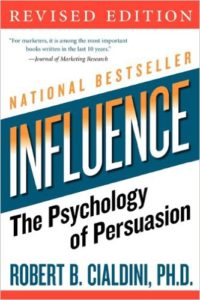 16. Influence: The Psychology of Persuasion by Robert Cialdini
16. Influence: The Psychology of Persuasion by Robert Cialdini
Priceless book on the six universal principles of persuasion, which are:
- Reciprocity
- Commitment and Consistency
- Social Proof
- Authority
- Liking
- Scarcity
Use them all in your sales and marketing.
Pricing:
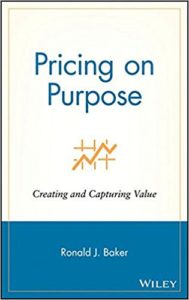 17. Pricing on Purpose: Creating and Capturing Value by Ronald J Baker
17. Pricing on Purpose: Creating and Capturing Value by Ronald J Baker
Virtually every pricing “guru” or consultant who does a snapshot study of a business will advise raising prices. You will…and you will make more money as a result. The danger here is that you’re cashing in on brand value in a measurable way (ie, revenues) but slowly undermining future brand value and word-of-mouth in an unmeasurable way.
But, you should still raise prices.
Management:
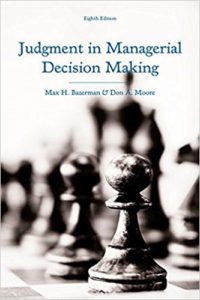 18. Judgement in Managerial Decision Making by Max H Bazerman
18. Judgement in Managerial Decision Making by Max H Bazerman
A study of heuristics (the way your brain systematically makes wrong decisions). This is invaluable for people management at every level, starting with yourself. It will teach you to overcome your own biases to improve the decision making process.
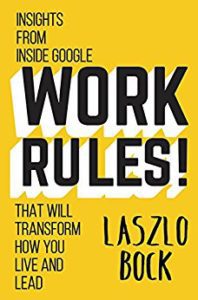 19. Work Rules That Will Transform How You Live and Lead by Laszlo Bock
19. Work Rules That Will Transform How You Live and Lead by Laszlo Bock
The Head of Google human resources for 15 years reveals how they do things inside the death star. It’s very insightful – and as it turns out, what employees value the most are things that don’t cost the company any money.
 20. Tao Te Ching by Lao-Tzu
20. Tao Te Ching by Lao-Tzu
I know, all of this is intellectually absurd, unbounded, unstructured myth…but I still love trying to be a zen master. And failing.
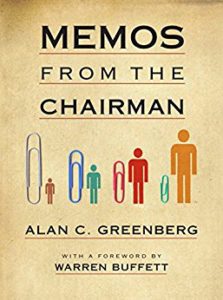 21. Memos from the Chairman by Alan Greenberg
21. Memos from the Chairman by Alan Greenberg
The chairman of Bear Stearns’ memos over the years gives a view into the “common sense” way of doing business. All those high-tech management strategies are BS – use your head. Keep costs low. Work hard. Treat your customers well. Good things will happen.
22. 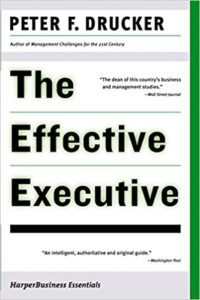 The Effective Executive by Peter Drucker
The Effective Executive by Peter Drucker
What would a business book list be without some Peter Drucker? Summary: Spend your time in the best way you can spend it.
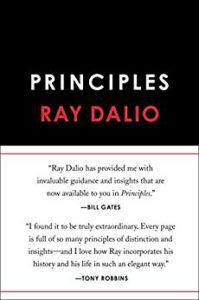 23. Principles by Ray Dalio
23. Principles by Ray Dalio
Since founding Bridgewater Associates in 1975, Dalio has learned a lot about effective company culture and decision making. Radical transparency and truth (for example: Evaluate accurately, not kindly) are just a couple of examples of what he puts out there. I just like the approach.
Do you have any additional books every SaaS executive should read? By all means, share them with us in the comments – we’re always looking for new books to read!

